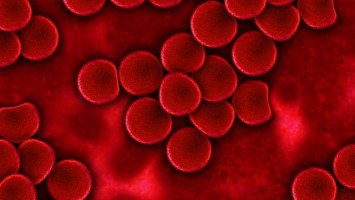
The standard treatment for cancer patients who develop blood clots is three to six months of anticoagulant therapy with low-molecular-weight heparin (LMWH).
However, there are little data to support the best ongoing anti-clotting therapy beyond six months.
This study evaluated the records of 1,502 patients with cancer-associated thrombosis.
Investigators selected patients who had completed treatment with LMWH for six months and divided them into two groups – one group of 763 patients continued to receive LMWH and the other group of 739 patients was switched to warfarin, another type of anticoagulant.
Because LMWH requires self-injections, warfarin is often thought to be preferred because it can be taken in pill form.
The cumulative incidence of major bleeding was 2.6 percent in the LMWH group and 2.7 percent in the warfarin group.
The cumulative incidence of total bleeding was 6.7 percent in the LMWH group and seven percent in the warfarin group.
The study found that switching to warfarin is not associated with an increase in recurrent VTE, major bleeding, or total bleeding when compared to continuing LMWH.
Researchers concluded that warfarin is an acceptable alternative for LMWH for patients with cancer-associated thrombosis.
Watch the press conference and video interview for more information.
Source: ASH
The World Cancer Declaration recognises that to make major reductions in premature deaths, innovative education and training opportunities for healthcare workers in all disciplines of cancer control need to improve significantly.
ecancer plays a critical part in improving access to education for medical professionals.
Every day we help doctors, nurses, patients and their advocates to further their knowledge and improve the quality of care. Please make a donation to support our ongoing work.
Thank you for your support.